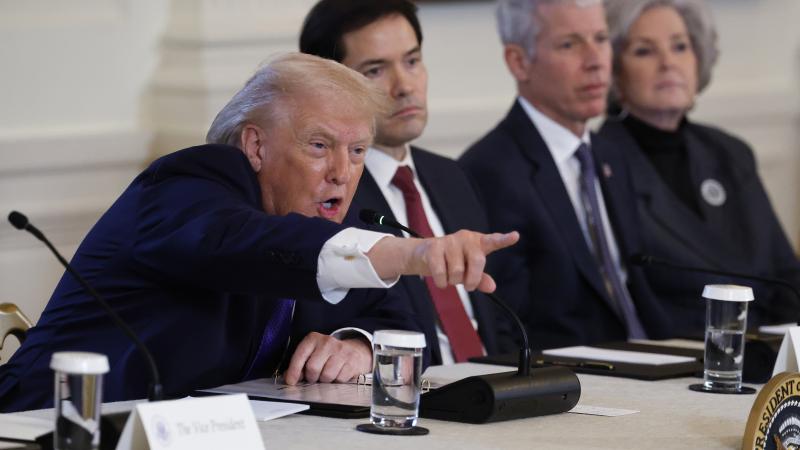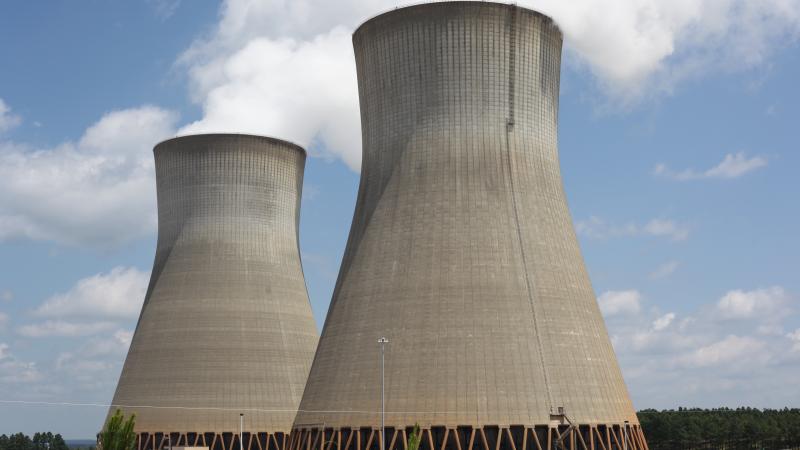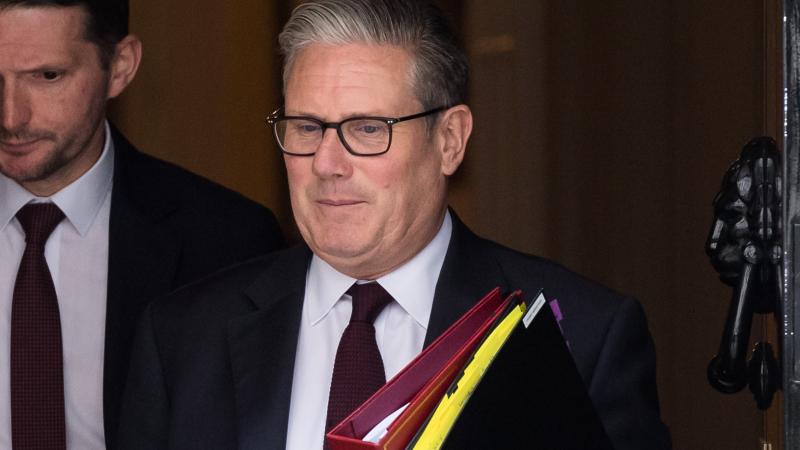Survey shows Americans aren't buying into climate hype, but the media don't seem to notice
As the Trump administration dismantles the Biden-Harris administration's climate policies, a new survey shows that when it comes to energy and climate issues, the American public isn’t buying the hype of a climate crisis.
In March, Environmental Protection Agency Administrator Lee Zeldin published an op-ed in the Wall Street Journal stating unequivocally that the EPA was ending the “Green New Deal.”
“We are driving a dagger through the heart of climate-change religion and ushering in America’s Golden Age,” Zeldin wrote.
The op-ed is one of 30 items that podcaster Tom Nelson compiled in a Substack article that he says shows the “climate scam” is collapsing. “I've been around looking at the news on this stuff since 2006 or something. And people were not talking like that at all back then,” Nelson said on the “Energy Realities” podcast this week.
Climate advocacy groups have been spending billions promoting a message that climate change poses an existential risk to people and rapidly eliminating fossil fuels is the cure. Yet, Nelson’s list notes billionaire activist Bill Gates slashing his support for climate initiatives, banks distancing themselves from climate commitments, and Google ceasing to claim that it’s carbon-neutral.
All that is on top of the actions the Trump administration is taking to reverse the Biden-Harris administration’s climate policies, which solicited very little in the way of organized protest. Now, a new survey confirms that when it comes to energy and climate issues, the American public isn’t buying the climate hype.
Legacy media are the last to notice
Dr. Roger Pielke, Jr. and Ruy Teixeira, senior fellows at the center-right think tank American Enterprise Institute (AEI), engaged YouGov to conduct a survey of Americans' attitudes toward energy and climate issues.
Among other things, the survey finds that the public broadly supports an “all of the above” energy policy, doesn’t support the rapid elimination of fossil fuels and supports increased domestic production of fossil fuels. The survey also found that the public prioritizes energy affordability and reliability, and most Americans are unwilling to sacrifice much financially to address climate change.
"After decades of climate activism and billions of government and private money spent on climate efforts, they still have not moved the needle on public opinion," Linnea Lueken, Heartland Institute energy research fellow, told Just the News.
Jeff Reynolds, senior editor for Restoration News, told Just the News that the legacy media don’t seem to grasp this about the American audience. He points to a recent segment in which CNN’s senior data reporter, Harry Enten, appears shocked by the results of a Gallup poll showing that the percentage of Americans who are “greatly concerned” about climate change dropped to its lowest level since 2000; specifically, a drop of six percent from five years ago.
“It's almost counterintuitive that the media is the last to notice that people just don't care,” Reynolds said.
Most Americans want ‘all of the above’ energy
The AEI/YouGov survey was based on an online sample of 3,093 voters between Sept. 20 through Sept. 26, with a margin of error of +/- 1.9%.
According to the survey, 53% of liberal voters support phasing out the use of fossil fuels to rely only on intermittent wind and solar power. However, only 29% of all respondents supported such a policy. The rest of them supported a mix of energy sources, including oil, coal and natural gas alongside renewable energy sources. Conservatives leaned heavily towards the varied-source approach, weighing in at 92%.
The survey also found that 56% of those surveyed strongly or somewhat favor increased domestic production of fossil fuels, while 10% weren’t sure. Nearly 70% saw the increased domestic production over the past few years as a positive development.
Only 39% said they thought the Biden-Harris administration’s climate policies took the country in the right direction, and 43% thought those policies were wrong for the U.S. Another 18% weren’t sure.
Of those surveyed, 36% said having power available when they need it is most important, followed by the cost of the energy they use. Only 19% thought the effect on the climate was the most important aspect of the energy they use.
Americans don’t think weather is becoming more extreme
While many media outlets seem to report every weather event as “extreme” and "unprecedented," the survey finds most Americans don’t see the frequency of extreme weather events — hurricanes, tornadoes, doubts, floods, cold snaps and winter storms — as changing one way or another, or they see them decreasing. The notable exception to this is heat waves, in which the survey found 60% of Americans believe these are becoming more frequent.
The survey notes that these views are in line with the findings of the Intergovernmental Panel on Climate Change (IPCC), a consortium of the world’s leading climate researchers. The IPCC analyzes extreme weather trends with two points — detection and attribution. Detection refers to the identification of trends one way or another in extreme weather over a period of decades, and attribution, which refers to the identification of a cause or causes of the detected change, if any.
While the IPCC has detected changes in heat waves, heavy precipitation, some types of drought and fire weather, which refers to wildfires, there have been no trends detected in other types of extreme weather.
With respect to the trends that respondents say they have observed, most attributed it to natural climate variability, or they weren’t sure, again except for droughts and heat waves, of which 52% said the trends were caused by human-driven climate change.
The survey also asked respondents how willing they’d be to support proposals charging a fee on their electricity bills to “combat climate change.” While 47% were supportive of a $1 fee, only 26% would vote in favor of a $20 hike. Nearly 70% would vote against a $40 fee. At $100, only 11% would vote in favor of the measure.
The survey showed college-educated voters were much more likely to support fees to fight climate change, but even then they had limits. More than two-thirds of college-educated voters, according to the survey, would vote against a $100 per month fee, and 39% would vote against a $1 fee. For those without a college education, 84% would vote against a $100 fee, and 46% would vote against a $1 fee.
“Americans are overwhelmingly far more pragmatic than the views found in the media or even those of most elected officials — both of which in 2025 tend to emphasize partisan politics over policy practicalities,” Pielke wrote of the survey results on his “The Honest Broker” Substack.
Lueken with the Heartland Institute pointed out the AEI/YouGov survey is not the only poll showing public opinion isn't lining up with the media and climate activists. A Monmouth study last year found that since just 2021, there was a 17-point drop in concern about climate change among adults 18-34 years old.
"That is despite that generation being targeted with climate alarmism since grade school, in public school classrooms and the media alike," Lueken said. "Every time bad weather comes, the media cries climate catastrophe, but the public is just not buying it. This is good news, because weather is not getting worse. "
Legacy media continue to push the narrative
Reynolds of Restoration News said it’s likely that people aren’t buying into the media narratives painting weather as growing dangerously extreme every day because they’re not personally observing these alleged trends in their own lives.
“We go outside and there's variation in the weather. And through human technological advancements, we've almost eliminated deaths from climate,” Reynolds said.
Reynolds said that the destructive and disruptive antics of groups like Just Stop Oil, whose activists were known for throwing soup on paintings, and Climate Defiance, whose protests would loudly shut down public events that had nothing to do with energy — even those events held by left-wing politicians — don't win any sympathy to their cause. Instead, their actions leave people with the impression the movement wasn’t sincere or rational.
“It’s all performance art. There’s nothing scientific to it,” Reynolds said.
While the national discussion on climate and energy is taking a different path, the mainstream media don’t seem to have yet noticed. Earlier this month, flooding in Texas claimed more than 120 lives. Multiple media outlets tied the disaster to climate change, despite there being no data supporting the claim that flash floods in that area are unprecedented or becoming more frequent.
It seems that it may be some time before media outlets start catching up to the public’s understanding of these issues, or recognize that willfully pushing the crisis of immediacy is a form of hidden persuasion.
The Facts Inside Our Reporter's Notebook
Links
- op-ed in the Wall Street Journal
- Podcaster Tom Nelson
- compiled in a Substack article
- Energy Realities
- spending billions promoting a message
- slashing his support for climate initiatives
- banks distancing themselves
- Google ceasing to claim
- very little in the way of organized protest
- American Enterprise Institute
- conduct a survey
- Restoration News
- shocked by the results of a Gallup poll
- report every weather event
- Intergovernmental Panel on Climate Change
- The Honest Broker
- eliminated deaths from climate
- Just Stop Oil
- Climate Defiance
- even those held by left-wing politicians
- Multiple media
- outlets tied the disaster to climate change
- no data supporting the claim













